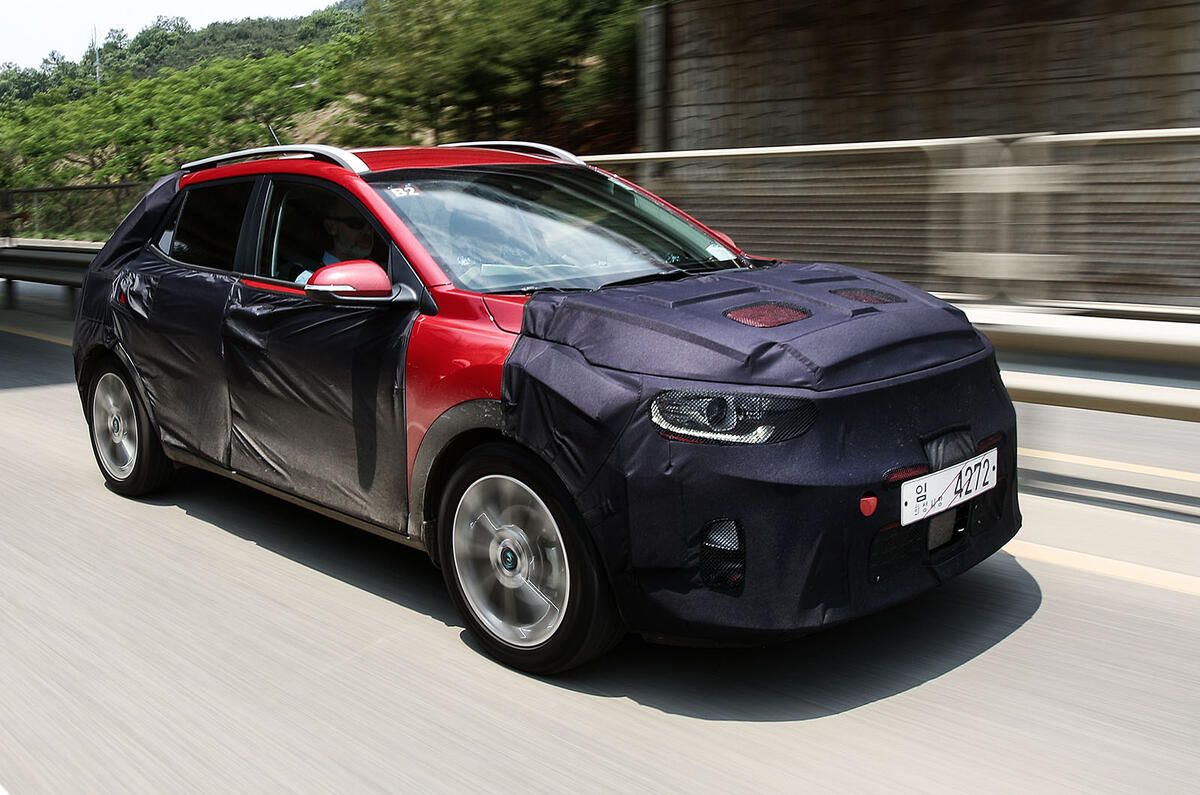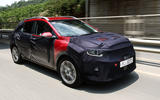The Stonic is potentially quite a colourful sight, bright hues and an optional two-tone finish complemented by similarly bright (and optional) cabin décor. It looks less mini-SUV and more high-riding hatchback than some of its competitors, the aim being to imbue this crossover with a sportier flavour than some.
Kia Stonic SUV: new Nissan Juke rival launched
Not that this is a car in which to lay rubber. The most powerful version is a 118bhp 1.0 litre turbo triple, which we got to try on public roads around the Hyundai and Kia research and development centre in Namyang, along with the 109bhp 1.6 diesel. You certainly climb into a cheerful cabin if it’s finished with the metallic orange highlights of the test car, to survey a tidily modern dashboard design complete with the increasingly commonplace upstanding infotainment screen. The driving position is good apart from the height-adjustable seat’s lack of a cushion tilt, the seat base’s fixed angle less than ideal. The control layout is logical and the infotainment system relatively straightforward to use.
There’s no mistaking the 1.0 litre’s cylinder count, the trio thumping a lightly throbbing beat that’s more evident than you’ll experience aboard plenty of three-piston rivals. Kia says there will be improvements to noise suppression for the showroom versions, which is just as well because the engine note doesn’t recede as much as it ought to at a cruise. Revs are won fairly easily, but it’s noticeable that the climb towards the red line develops in faint steps, this engine less smooth than some three-pots. But both clutch and gearlever are light and easy to use, the six-speeder’s gate well defined.
The four-cylinder diesel, which provides the lowest CO2 emission rating, also comes with a six-speed gearbox. This 109bhp 1.6 litre four-cylinder pulls solidly from usefully low speeds and provides the Stonic with a slightly more effortless character. But like the three-cylinder petrol it’s a little too gruffly intrusive, and certainly isn’t the most refined small diesel. Better news is that this engine will be replaced in 2018, so it may be worth hanging on if it’s a diesel Stonic you want.
On the move the ‘solid’ ride that Kia product development chief Spencer Cho describes is evident as soon as you hit a turbulent road surface, the suspension’s absorption powers no more than moderate. The Stonic’s ride isn’t uncomfortable, but like the Rio on which it’s closely based there’s a disappointing lack of suppleness and sophistication. Smaller, sharper bumps are usually felt, and road roar is slightly too penetrative. More positively the steering is precise and well weighted, at least at the relatively modest speeds of the test drive. There was no scope for brisk cornering, but the Stonic’s reluctance to roll was evident, suggesting decent agility at the minimum. It’s also easy to drive.
The Stonic feels spacious, too, the big windscreen making it feel more commodious than it actually is up front, while those in the rear will enjoy enough space to make long journeys more than tolerable. A shame, though, that there’s no panoramic glass roof option, especially as the paint looping from the ‘D’ pillars across the roof of the two-tone versions is described by Kia as a Targa effect - this word usually implies a removable roof.






































Join the debate
Add your comment
Its odd they wanted you to